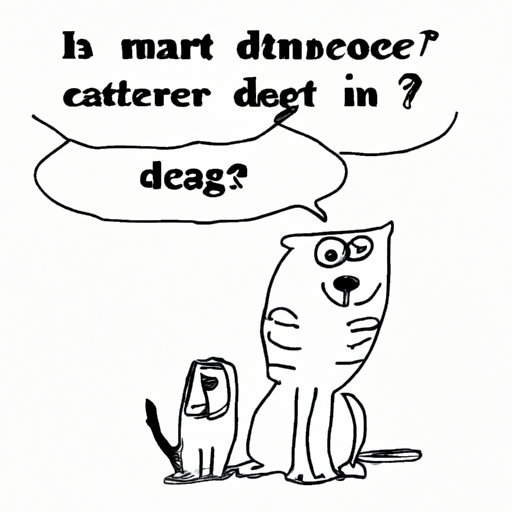Dogs and cats, two of the most beloved animals worldwide, often have a curious relationship. While we usually imagine dogs chasing cats, there are many instances where the tables are turned, causing us to question why dogs are scared of cats. This article delves into the reasons behind this intriguing behavior, helping you better understand and care for your furry friends.
Table of Contents
- The Natural Instincts at Play
- Dogs’ Experiences with Cats
- The Role of Size and Personality
- Tips to Foster Harmonious Coexistence
- Frequently Asked Questions
Key Takeaways
- Dogs’ fear of cats can emanate from natural instincts, past experiences, or the individual’s size and personality.
- Understanding these reasons can help caregivers facilitate better relationships between their dogs and cats.
- There are practical steps to foster harmonious coexistence between dogs and cats.
The Natural Instincts at Play
The relationship between dogs and cats can be traced back to their wild ancestors, where survival instincts often determined interactions. Cats, being solitary hunters, are generally more cautious and defensive, while dogs, as pack animals, are more social. This fundamental difference can cause a dog to misinterpret a cat’s behavior, leading to fear. For example, a cat’s defensive stance might be mistaken for aggression, causing the dog to retreat.
Moreover, dogs have a keen sense of smell and can pick up on the unique pheromones cats release when they feel threatened. This signal can make the dog feel uneasy, contributing to their fear. This is well explained in this article by PetMD.
Dogs’ Experiences with Cats
Beyond their instincts, dogs’ experiences with cats can significantly influence their reactions. Dogs that have had negative encounters with cats, such as being scratched or hissed at, may develop a fear of them. On the contrary, dogs that grow up with friendly cats often have a harmonious relationship with them.
It’s the same principle explained in this OneTopDog article on introducing dogs to cats. The first meeting is crucial. It either sets the stage for a lifelong friendship or instills an enduring fear.
The Role of Size and Personality
Size and personality also play a crucial role in a dog’s reaction to cats. Small dogs or breeds known for their timid nature may be more likely to fear cats. Cats can seem intimidating, especially if they stand their ground or display aggressive behavior.
Likewise, a cat’s personality can influence a dog’s reaction. Cats with a bold, assertive demeanor are more likely to scare dogs. More information about dogs’ behavior towards different animals can be found in this OneTopDog article.
Tips to Foster Harmonious Coexistence
Understanding why dogs fear cats is the first step towards fostering a harmonious relationship between them. Here are some practical steps to encourage peaceful coexistence:
- Gradual introduction: Introduce the dog and cat slowly, allowing them to get used to each other’s presence before they interact closely.
- Positive reinforcement: Reward both pets for calm and friendly behavior towards each other.
- Establish separate territories: Ensure both pets have their own spaces where they can retreat to if they feel uncomfortable.
More detailed tips can be found in this OneTopDog article.
Frequently Asked Questions
1. Are all dogs scared of cats?
No, not all dogs are scared of cats. The fear depends on the individual dog’s instincts, experiences, size, and personality.
2. Can dogs overcome their fear of cats?
Yes, with gradual exposure and positive reinforcement, dogs can overcome their fear of cats.
3. How can I help my dog and cat get along?
Gradual introduction, positive reinforcement, and separate territories can help foster a harmonious relationship between dogs and cats.
In conclusion, while it might seem odd that dogs, often larger and stronger, might fear cats, understanding the underlying instincts and experiences at play can shed light on this behavior. As a caregiver, this understanding can help you create a peaceful environment for both your furry friends.



